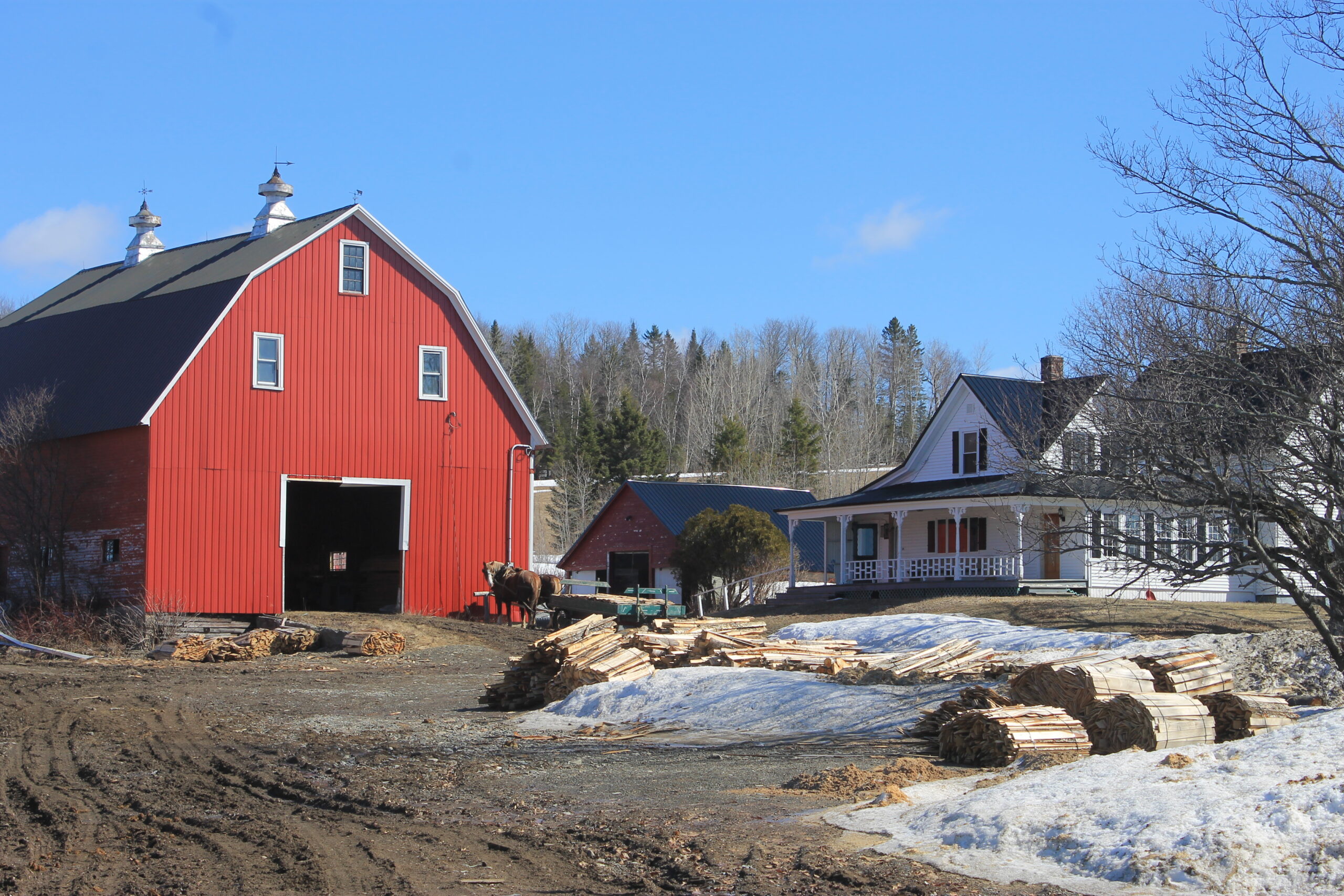
FORT FAIRFIELD, Maine — While the Amish are a small part of Aroostook County’s large forest products industry, one family has kept up a strong business sawing pallet lumber and plotting some new opportunities in hardwood flooring.
Noah Yoder, one of the first Amish settlers in central Aroostook County more than a decade ago, has spent the past four years sawing pallet lumber for County Box & Pallet, which in turn was a major supplier for McCain Foods. County Box & Pallet, run by the Central Aroostook Association, shut down this month due to a range of cost factors.
“We thought we were going to be out of work, but it never happened,” Yoder said. “We didn’t slow down.”
Another local pallet maker, Kearney Pallet in Mars Hill, has kept on supplying McCain Foods and needed to buy additional pallet lumber.
“We’ve been kind of fortunate to switch our business over to selling to Kearney,” Yoder said.
Yoder’s is one of two Amish-run sawmills in central Aroostook County. The other, run by the family of Jacob Miller, produces custom softwood lumber.

A barn at the homestead of the Yoder family on Forest Avenue in Fort Fairfield, seen here on April 17, will house a hardwood flooring business set to be operational in the fall of 2019.
(Anthony Brino)
The Amish originated from the Christian Anabaptist movement and practice simple-living traditions, avoiding many aspects of modern society such as electricity, motor vehicles and telephones. Most Amish light their homes with oil lamps — the Yoders use mineral oil — and dress in plain clothes, with women often wearing bonnets and men hats.
Their sawmills in Aroostook use non-electric diesel engines, a relatively simple technology that’s been accepted in Amish tradition for more than a century, Yoder said.
Yoder’s pallet lumber business buys lower-grade hardwood from area loggers and partially-sawed square logs that are sawed into pallet wood, and then trucked to the Kearney pallet and box mill.
“I’ve been in lumber for most of my adult life,” Yoder said, adding that he also ran a dairy herd. “Sawing pallet lumber is something done in many Amish communities. It’s a really good type of work for us to do. The trouble we have here is we don’t have enough market here for more mills.”
Yoder said he is currently in talks with PalletOne of Livermore Falls to produce and sell them pallet lumber.
“Logistics is going to be the big thing, finding a good way to truck the material down there. That’s the one hurdle we’re going to have to overcome.”
Yoder has also started sawing grading stakes for the surveying and construction industry. The stakes are sold at local S.W. Collins stores.
And in addition to the sawmill, Yoder is in the midst of converting a building on his farmstead into a small hardwood flooring mill that will use higher-grade hardwoods for flooring sold to both wholesale and local markets.
“We think there might be a need for that. There’s no longer any more hardwood flooring being built up here,” he said, referring to the 2017 closure of Moosewood Millworks in Ashland.
“We also hope to make some reclaimed barn board flooring. We already have the machine for the molder and I just purchased another piece of equipment in Massachusetts. We’re hoping to be up and running by fall.”
One thing that the Amish sawmills have in common with other forest products businesses in northern Maine is the challenge of dealing with sawdust, bark and mill residues in the aftermath of the ReEnergy biomass plant closures.
“Every year, we’d have about 600 to 700 tons of mill waste that would go to those plants. We don’t know what we’re going to do with it.”
The Yoders and other Amish families use the sawdust for livestock bedding, mulch and composting, but have more than they need.
“We’re giving it away to area farmers, as much as they want, but there’s a lot left over.”




